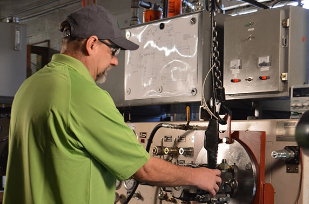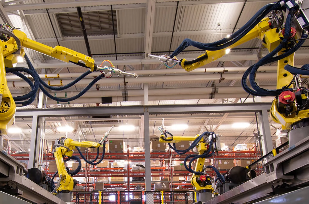Author Paul Sloane once said, “only do what only you can do.”
It can be hard to delegate any part of our business to other people. But outsourcing certain aspects of your business can lead to better product quality
Over the last few years, many companies have opted to outsource process to contract manufacturing firms.
We’re all familiar with big corporations outsourcing overseas, but many smaller companies have opted to outsource their manufacturing too. It allows companies to make their goods without the overhead of expensive equipment.
Before you start, it’s important that you and your manufacturer lay out clear terms. This is where the contract manufacturing agreement comes in.
But this agreement can be difficult to understand if you don’t know what you’re looking at.
In this article, we’ll look through the different parts of the agreement so you can understand what you and your contract manufacturing company are agreeing to.
Who Needs a Contract Manufacturing Agreement?
If you are going to outsource any part of your manufacturing to a contract manufacturer, you will need to sign an official agreement first.
A contract manufacturing agreement lays out all of the nitty-gritty details between you and the contract manufacturing companies you’ll be working with.
These contracts lay out things like manufacturing cost, turnaround time, intellectual property, distribution and more.
In order for your contract to be legally binding, it needs four elements.
- An Offer
- Acceptance by all parties
- The intent to create a legal relationship
- Consideration (this is any transaction of currency or goods)
If your contract includes these, it can protect you in the event of fallout with your manufacturer. It can even give you legal standing if your contract manufacturer fails to keep up their end of the bargain.
Most contracts also include the responsibilities and liabilities of each party. This clearly lays out everything your manufacturer is expected to do and offers a course of action if those terms are not met.
You want your final product to be made with the same care as if you were doing it yourself, so it pays to be explicit with these terms from the onset.
Common Elements of a Contract Manufacturing Agreement
All manufacturing agreements serve to lay out the terms of the relationship between hiring companies and contract manufacturing companies.
As such, each of these agreements will vary based on the specific relationship between the two parties.
No two contracts are exactly the same. But there are a number of elements that are shared between most contracts.
Quality Agreements
Whether you’re manufacturing an item yourself or outsourcing it to another company, you can’t sell it to the end client if it fails to meet quality standards.
Every manufacturing contract should include provisions regarding quality control. If you skip this step, then your manufacturer would be free to send you defective goods without any sort of recourse.
Supply Chain Agreement
Before your product gets into your customer’s hands, it passes a number of stages on the supply chain.
First, your supplier offers up the raw materials. Your manufacturer processes it into your product. Often it then goes to the packager before being sent to the end user or a retailer.
Often, the supply chain is established in the manufacturing agreement. This will streamline communication along the way.
Toll Manufacturing Agreement
If you want more control over the supply chain, you might want to consider a toll manufacturing agreement.
In toll manufacturing, you provide all of the raw materials yourself, instead of going through another supplier.
Purchase Orders
If you don’t want to jump right into a long-term business partnership with a contract manufacturer, you can test the waters with a one-time purchase order.
When your manufacturer accepts your purchase order, that order acts as a legally binding contract between the two parties.
According to the Uniform Commercial Code, the purchase order is enough to establish acceptance and intent. As such, it has the same legal standing as a negotiated contract between the two products.
Licensing Agreements
If your goods require the use of your trademarked intellectual property, your contract manufacturer is going to need licensing in order to manufacture the item.
For example, if a manufacturer wants to make Mickey Mouse dolls, but it doesn’t have a licensing agreement from Disney, then they might find themselves on the receiving end of a trademark infringement case.
Including a licensing agreement in your contract clears up any unnecessary questions about trademark rights.
Do I Need a Non-Disclosure Agreement?
Depending on what you’re making, you may need to add a non-disclosure agreement to your contract.
This is especially common in the technology sector. Smartphone companies require that their contract manufacturers agree to keep information a secret until the company announces it.
Apple is especially touchy about how information about their products is announced. Just recently, the world watched their keynote where they announced the new iPhone.
How much less dramatic would that keynote have been if workers at the manufacturing plant had been gabbing with their friends about all the new features on the phone they’ve been making for Apple?
Your company probably has a smaller footprint than Apple. But if you’re launching a product and want to keep the element of surprise, you’ll want to include an NDA in the terms of your manufacturing agreement.
Outsourcing Helps you do More
Outsourcing your manufacturing to an outside company can free you up to do more of what only you can do. And it can even save you money.
But you need a strong contract manufacturing agreement, or else you can wind up in a whole mess of trouble.
Before agreeing to the right contract, you need to find the right company. Here are eight questions you need to ask a contract manufacturing company before hiring them.
Go ahead and point those questions at us. We’ll be ready.





